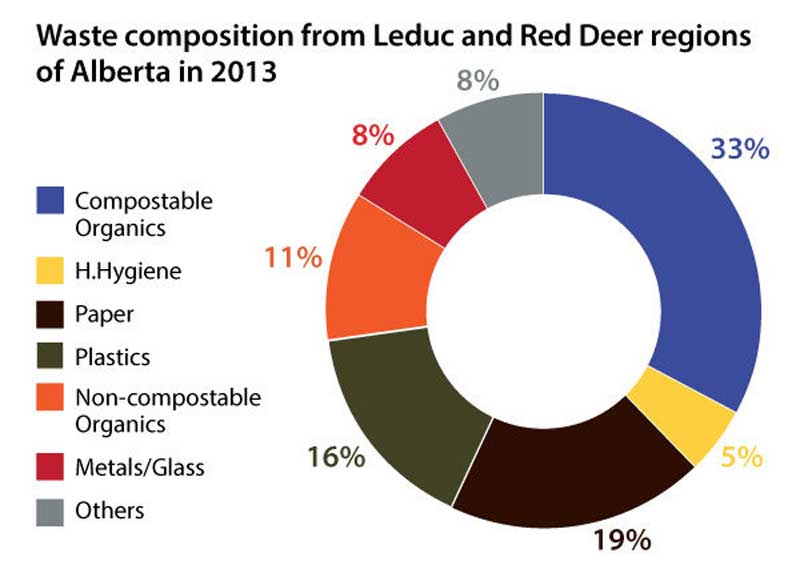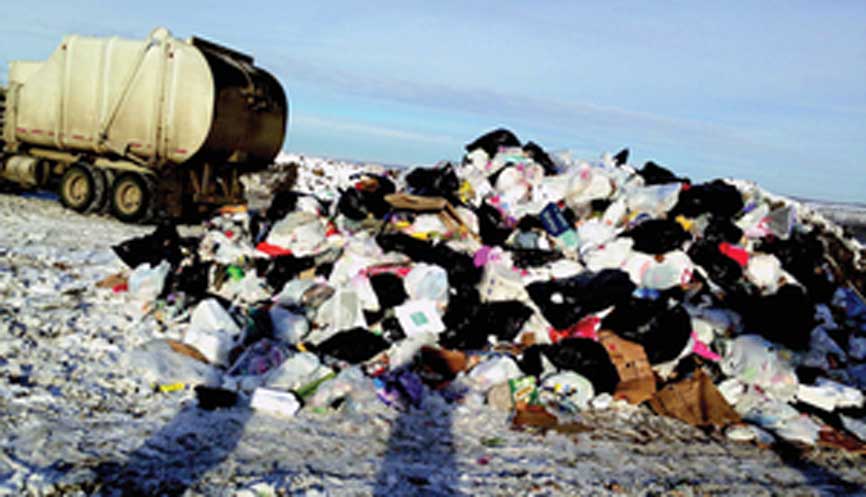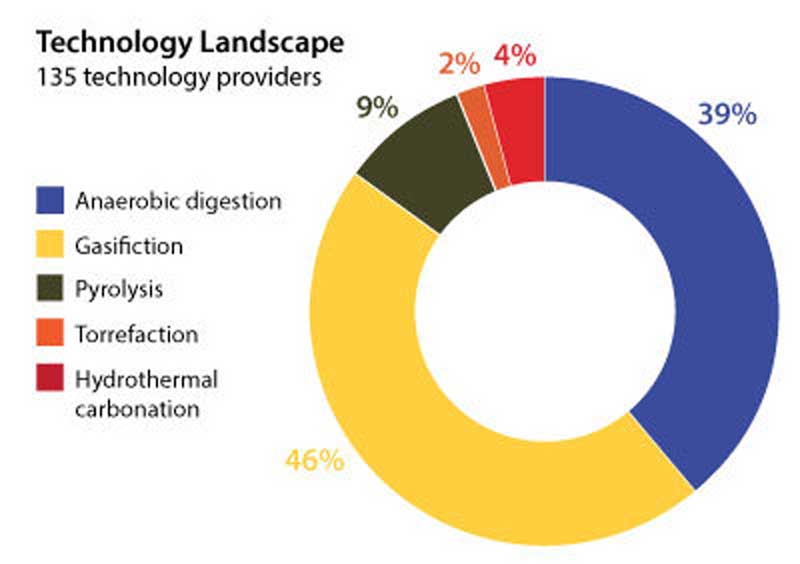

Solid Organic Waste Conversion in Small Communities
Pub Date:May 17, 2017 | Views:76 |
From Biomass: Alberta generates approximately 4 million metric tons of solid organic waste (SOW) per year, most of which is landfilled. This waste, with significant energy content, decomposes to generate leachates and methane, a potent greenhouse gas. Conversion into valuable products would reduce the amount of SOW landfilled, take advantage of its energy content, and mitigate other environmental problems. A study was conducted to identify the most promising technologies and their providers for converting 10,000 to 100,000 tonnes of SOW per year, generated by or in the vicinity of small and medium communities in Alberta.

The identification is based on Key Intelligence Parameters, reflecting desired technology and provider attributes. A numerical ranking method highlighted the most promising technologies and their providers. The driving forces influencing future developments of SOW conversion technologies were ascertained.

The identification yielded over 700 SOW conversion technologies and their providers falling into two broad categories: biological and thermochemical processes. The ranking method, combined with our expertise, led to an in-depth appraisal of three representative technologies.

While current technologies are expected to undergo further improvements resulting in reduced costs, there is an urgent need for new technologies yielding higher-value products than heat and power.
The primary technologies suitable for converting SOW, which consists of 80 percent of MSW, in small and medium Alberta communities, are biological and thermochemical processes. Anaerobic digestion is one of the most promising technologies to convert SOW with high biodigestible content and high water content into valuable products, while preserving plant nutrients. A representative biogas technology provider is BEKON Energy Technology. Thermochemical technologies, represented by gasification and pyrolysis, are particularly suitable for converting dry SOW, such as paper, plastics, and wood waste into syngas and bio-oil. Representative thermochemical technology providers are Chinook Sciences and Ensyn Technologies. All technologies identified through this study require presorting of wastes.
Most commercial technologies identified in this study are designed for large SOW feed rates, typically greater than 100,000 TPY. These plants are dominated by thermochemical conversion technologies. Less than 35 percent of the technologies/technology providers identified fall within the desired capacity range applicable to the majority of Alberta’s small and medium municipalities, i.e. generating 10,000 to 100,000 TPY.